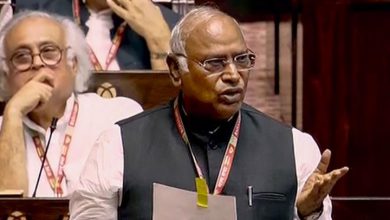World AIDS Day: Health organisations urge people to get tested for HIV; here’s why you should ‘know your status’

1 December, marked as the World AIDS Day every year, is used as an occasion to spread awareness and unite people in the fight against HIV/AIDS. Started in 1988, the first World AIDS day was celebrated as the first ever global health day. And, it still holds significance given the world is yet to be free from the deadly disease. Thus, it becomes important to remind people and governments that there is still a need to raise money, increase awareness, fight prejudice and improve AIDS education.
According to UNESCO, worldwide in 2017, there were approximately 2,50,000 new cases of HIV infections and 38,000 AIDS-related deaths among adolescents. This apart, 1.8 million adolescents globally are currently living with HIV. But even more startling is the fact that, that more than 9.4 million people who would test positive for HIV, still do not know their status.
And therefore, to stress on the importance of making one aware of the possibility of contracting the virus, this year the theme of the World AIDS Day is ‘Know your status’.
Jahnabi Goswami was just like any other woman, happy to start a new life after marriage, but her world changed after she was found positive for HIV/AIDS. Goswami’s husband was also suffering from the disease and she had contracted it from him.
She lost him to the disease, but determined to fight through the prejudices of society, Goswami not only talked openly about her condition but also continued to lead a normal social life, which she says was all thanks to the support of her mother. She is now associated with many Indian organisations and NGOs working for HIV+ people and is the president of the Indian Network for People living with HIV/AIDS (INP+).
Even though, having come a long way since 1988, we now have easily accessible testing, treatment, a range of prevention options, and services that can reach vulnerable communities; access to confidential HIV testing remains an issue of concern.
Goswami says that most of the stigma attached to the disease is because of its confidential nature. “If I have TB, diabetes or cancer, I can say that in front of the people but why there is discrimination when it comes to HIV,” questions Goswami.
Since it was first detected, more than 70 million people have acquired the infection, and about 35 million people have died. Today, around 37 million people worldwide live with HIV, of whom 22 million are on treatment, according to the UN AIDS data.
At the same time, there are many new opportunities to expand access to HIV testing. Self-testing, community-based testing services, and multi-disease testing are helping people know their HIV status.
In India, by the end of 2017, there were an estimated 21.4 lakh people living with HIV (PLHIV). The adult (15-49 years) HIV prevalence was 0.22 percent and as many as 11.81 lakh people are on anti-retroviral treatment in the country, according to the India HIV Estimation 2017 report, released by the National AIDS Control Organisation.
Goswami says there is much left to be done when it comes to the actual implementation for providing aid and support to HIV patients. “We have doctors and medicines… but there is no proper follow-up on a patient’s case which leaves them in the lurch after being identified with the disease,” she says.
There were 87,590 new HIV infections and 69,110 AIDS-related deaths in Indian in 2017, according to the report. Interestingly, in five states — Arunachal Pradesh (65%), Assam (37%), Mizoram (18%), Meghalaya (10%) and Uttarakhand (4%) — new infections increased in 2017 as compared to 2010. In 2017, Mizoram showed the highest estimated adult HIV prevalence of 2.04%(1.57-2.56), followed by Manipur (1.43%, 1.17-1.75) and Nagaland (1.15%, 0.92-1.41).
The reason for its rise in the North-East region, Goswami who belongs from the region, said was that there is a delay in the release of funds for the NGOs who are working for HIV+ patients in the area. A laid-back approach in implementing the policies and lack of basic requirements like condom-vending machines is what is causing distress for the community, she said.
Therefore, on the 30th anniversary of the World AIDS Day, health organisations globally are urging people to come out, get tested and know their status so that the spread of the disease from “me to you” — as Goswami puts it — is reduced and more awareness is generated on acceptance of HIV+ patients.







